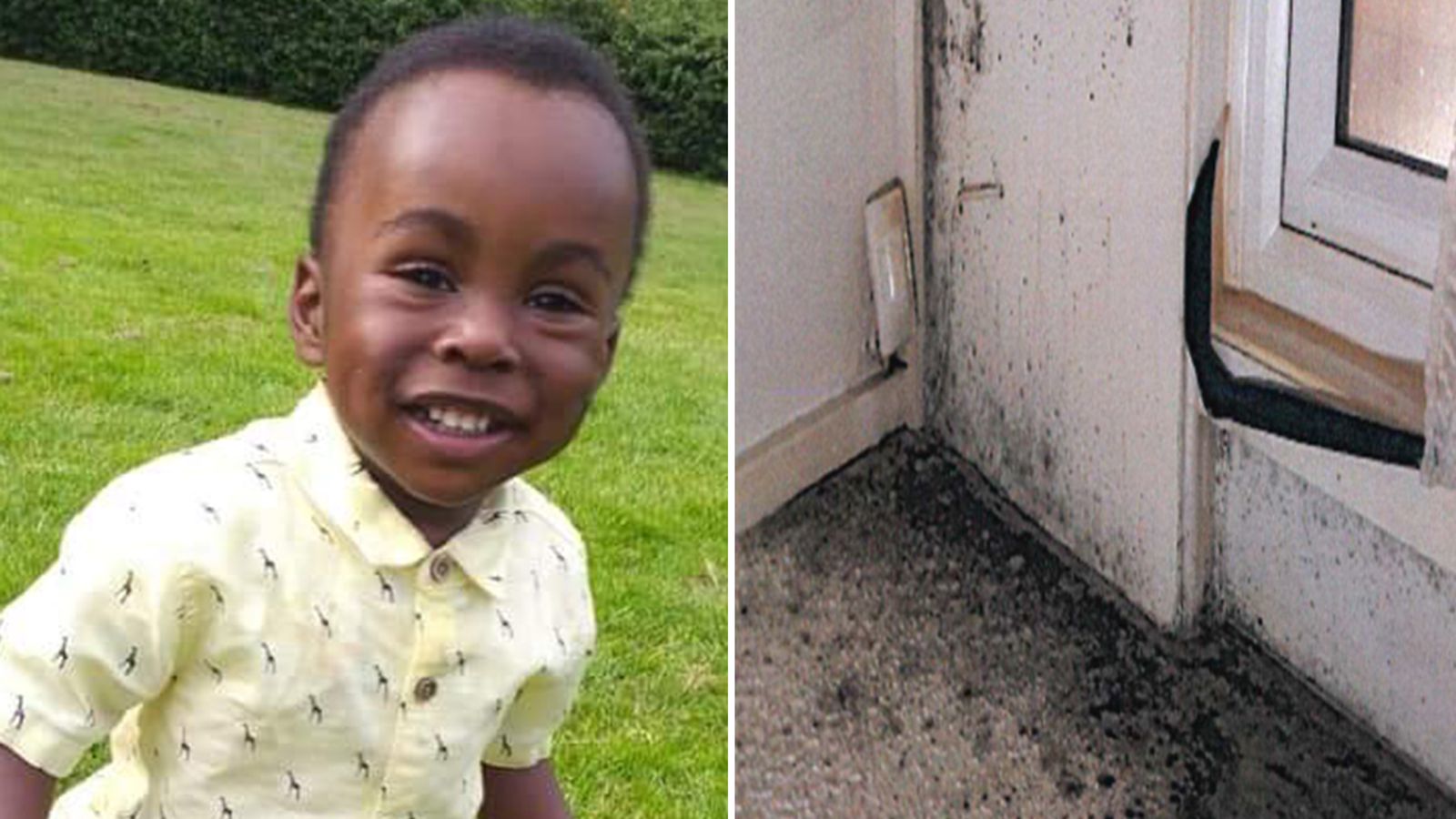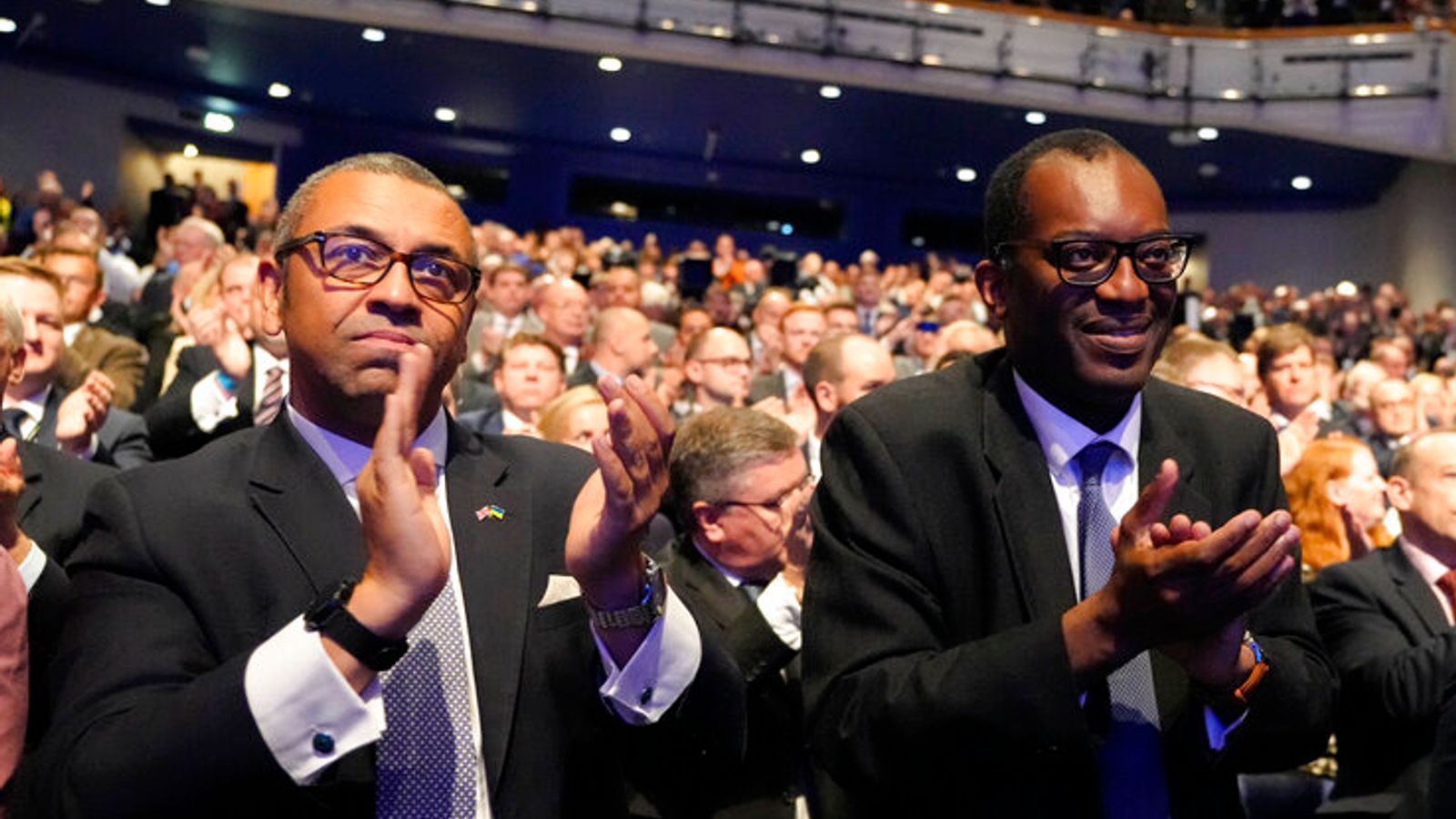‘You wouldn’t believe the amount of dicks’: Secrets of a ballot counter


When the polling stations close at 10pm on 4 July, thousands of ballot counters will be flexing their fingers, ready for what could be a very long night’s work.
All the country’s votes will be counted – and recounted – by hand.
But what is it like to be one of the people tasked with delivering democracy by dawn?
Sky News spoke to five ballot counters – who between them have worked more than 100 elections – to find out.
Ian Humphries is clocking up his 50th election with Newcastle City Council with 2024’s general election.
You’ll find him in a cavernous sports hall at Northumbria University, just another “Joe Bloggs” getting through the count “as efficiently and quickly as I can”.
What his fellow counters might not realise is that he is one of the people responsible for taking Newcastle from being around the 300th council to declare its results, to first in the Brexit referendum and then again in the 2017 and 2019 general elections.
The former elections manager tells Sky News it’s an “urban myth” there is a race between Newcastle and Sunderland for who will declare first (Sunderland held the crown from 1992 to 2015).
It’s not about being fast per se, but maximising “accuracy and efficiency”, he says.
Advertisement
Still, there are tactics to deliver that. A move to a new venue was key – a bigger space meant more people, each “blitzing” through just a few boxes each.
If you can get the count done quickly, before tiredness – and sloppiness – sets in, recounts are less likely to be necessary, he says.
“At 5am, how accurate are you?” Ian questions.
The quest to “shave off minutes” starts at the polling station, where staff are primed to get ballot boxes out the door and into the car of the presiding officer – the person in charge of the polling station – as quickly as possible.
They will ferry the box by the most efficient route to the count venue, where a slick operation is waiting at the door.
The car pulls up, a worker opens the passenger door, grabs the ballot box from where it’s waiting on the passenger seat, closes the door and away the car drives.
The box is handed to a “runner” – normally a university student employed for a night of manual labour – who hurries it into the building to be checked off.
The time-saving strategies mean counting can start soon after 10pm, when previously all the boxes may not have arrived until 11pm.

The counting process has also been honed to make it as accurate and efficient as possible.
Once the number of ballot papers has been verified, they are sorted into piles for each candidate, which are then counted into bundles of 50.
Each bundle has an elastic band running north to south so a “flick check” can be performed.
The counter thumbs through the pile like a flip book – a quick way to see if the same box has been marked on each paper in the stack.
But with boundary changes to contend with in this election, Ian isn’t holding his breath for Newcastle to be the first constituency to declare.
“All bets are off,” he says.
Either way, he’s anticipating an “electric atmosphere” when the sports hall is filled with counters, candidates and their agents.
“Their excitement and sense of jeopardy – you can almost taste it,” Ian says.
Chris Hobbs has worked every election bar one since 1988, as a poll clerk, presiding officer and counting assistant with Tandridge District Council in Surrey.
During counts that sometimes lasted until 4 or 5am, he has seen every “phallic symbol” and expletive going as voters spoil their ballots.
He says: “I’ve seen cat faces, huge rafts of text explaining why they are spoiling their votes, some abusive text about individual candidates.
“‘Vote for clowns, get a f****** circus!’ was particularly amusing at two o’clock in the morning.”

The voters provide an occasional laugh, but you also feel part of something important, he says, as “democracy happens right before your eyes”.
The Brexit referendum was the busiest election Chris has worked due to the sheer number of voters.
He says he definitely “earned my pay” that day, working as the presiding officer in a polling station set up in a room of a country pub.
“It was a challenging day as people arrived to vote and stayed for a drink or four,” he says.
“It got raucous for a while as well-refreshed folk kept popping back in to try to vote.
“Egged on by their drinking buddies, every hour or so the pub dog was ‘slid’ into the room from the pub to much laughter, covered in political rosettes!”

Andy Wragg keeps saying each election will be his last – but he’s on 41 and counting, the majority with Rushcliffe Borough Council in south Nottinghamshire.
His first working general election was Margaret Thatcher’s landslide 1983 victory, when he was appointed as a presiding officer aged 22.
It’s a role he’s repeated many times since, as well as working as a ballot counter.

Getting all the ballot boxes from the polling stations to the count venue was more fraught in the days before widespread mobile phones, he tells Sky News.
The verification process – where ballot papers are tallied before the proper count starts – cannot begin until all the boxes are received.
But in one memorable incident, a presiding officer bringing in a ballot box missed a turning and “kept driving south”. In the end, the police had to be dispatched to find her, 50 miles from where she should have been, Andy says.
Having been expected by 11pm, she arrived “rather sheepishly” at around 1.30am.

Keep up with all the latest news from the UK and around the world by following Sky News
The 1997 election was another big one to work on: “You just felt the sway really of it… You felt something was coming at that point,” Andy says.
He once worked at one of the smallest polling stations in the country – a farm cottage “in the middle of nowhere” repurposed for the day for about 150 locals.
The problem was, Andy says, the host of the house knew everyone – and she couldn’t resist popping into the lounge where people were voting for a natter.
They reached a compromise where after people had voted, he sent them through to the kitchen for tea and cake and they then left by the back door.
“Adding cake to the electoral process was unusual, but we had to get them to flow through,” he says.
Please use Chrome browser for a more accessible video player

0:58
How the vote count works
As one of the more confident Welsh speakers at Cardiff Council, Cai Maxwell will be making announcements during the ballot count after a day on the road as a polling station inspector.
The count is “high intensity”, he says, with the tension ratcheted up by the intense scrutiny of candidates’ counting agents who make sure everything is accurate.
They “pick you up on everything,” he says.
He remembers one run-in he had when he failed to shake the ballot box upside down to show there were no stray papers tucked in the bottom, resulting in a complaint to the returning officer.

Cai also takes great joy in the spoilt votes – not least because of how they are inspected, with a spotlight and camera set up so a blown-up version can be displayed on a TV.
“The amount of people who put dicks on ballot papers you would not believe,” he says.
“When you’ve got graffiti like that it’s hilarious because it’s a really formal procedure.
“You’ve got all these people in suits going through this process, looking at the ballot papers and all of them obviously nodding in agreement that yes, that’s invalid.”
But working behind the scenes gives you an insight into how strictly monitored the count is, he says.
As well as the eagle eyes of counting agents, there are strict protocols such as sealing the ballot boxes with tabs (something Andy Wragg remembers being done with wax). This means there is no way for the box to be opened while it’s being taken from the polling station to the count venue.
“I think a lot of people take pride in it because once you’ve seen it from our perspective, there’s absolutely no way it can be meddled with or fixed.”

Holly Hancocks has worked elections since 2008 – and has seen a lot of the same faces year on year.
“It’s always quite jolly and funny to start,” she says, as workers catch up with people they haven’t seen since the last election.
“Then once the counting begins, it’s very quiet. It’s quite a studious environment.”
She has held various roles, including at polling stations as a poll clerk and presiding officer, and at the count venue as a runner, counting assistant and count supervisor.
There are always “lots of boiled sweets around” during the count.
“You can’t have anything that would dirty the ballot papers,” Holly explains – and that’s just one of the rules workers must follow.
They’re all about preserving the “sanctity of the ballot paper” and making sure the count is fair, she says.
Read more:
Memorable moments from election campaigns gone by
How party leaders are upping the ante as poll day looms
How to watch and follow results night on Sky News

Ballot papers must remain face up so the ballot number on the bottom is hidden and the candidates can see the votes.
All the workers must also wear neutral-coloured clothes so they are not seen to be supporting a particular party.
Holly says: “You leave your own political opinions at the door. And you have to be a completely neutral party, and that can sometimes feel a bit weird.
“Say there’s 100 count assistants in a room and somebody gets announced as being the victor… and you’ve got 100 people in the room that are just kind of politely clapping without really showing any emotion.”
It’s an “odd juxtaposition” to the exuberant celebrations of the winning party, she says.
Redditch, where she has mostly worked, is a swing seat, which Holly says makes it particularly exciting.
It also means the ballot counters can be in for a long night if it is particularly close and requires a recount.
Holly has seen local elections “where there’s one vote in it, so a full recount has happened… that’s always very tense”.

